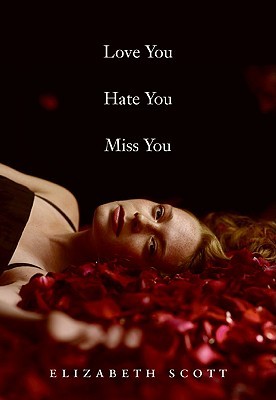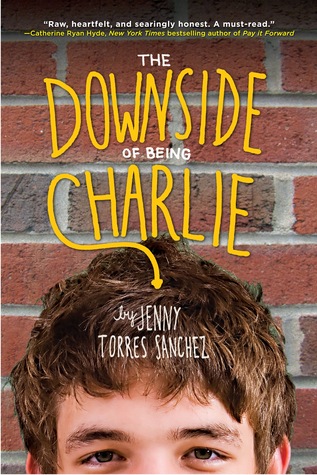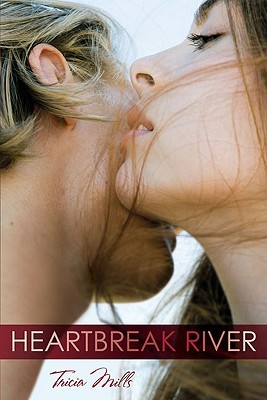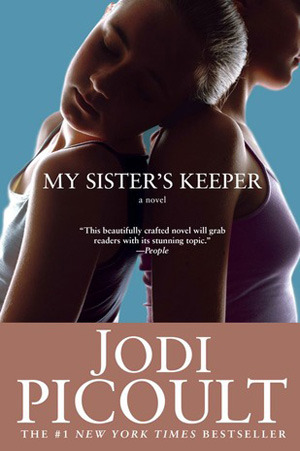 Kissing Games of the World by Sandi Kahn Shelton
Kissing Games of the World by Sandi Kahn SheltonPublished: 2008 but my edition was 2009 by Random House
Genre: Adult... fiction? Contemporary? I personally don't think it's romance but some people have it shelved as that. Maybe Women's Fiction? I'm not good at grown up books XD
Binding: Paperback
Page Count: 383 in my edition
Part of a series? No, it's a standalone.
Got via: For review, I think from the publisher. Possibly in 2009 - WAIT I'll check and see if I did an IMM... yes, I did. So January 2010. Which was, uh, four and a half years ago. Um. Sorry about that. I've been working on it!
Amazon / Book Depository / IndieBound
Summary (from goodreads): Jamie is a free-spirited artist and devoted single mom with a slightly unorthodox living situation: in exchange for free rent, she looks after the grandson of her much older landlord. But when Harris Goddard dies of a heart attack–naked and splayed out in Jamie’s bed–nobody believes that he and Jamie were just roommates.
With the rumor mill buzzing and two small children to care for, Jamie’s life is further upended when Harris’s handsome son, Nate, a charismatic jet-setting salesman, shows up unannounced at his childhood home to settle the estate and reclaim the five-year-old son he left behind.
As Jamie’s and Nate’s highly guarded worlds collide, can these two damaged souls manage to see the good in each other... and maybe more?
Review: I don't know if you've noticed, but lately, I haven't really read a lot of adult fiction. Besides that whole thing where I read several hundred picture books a year for my job, I've been going through a definite YA/MG streak, especially since I've been trying to read through my review stack. My tastes in adult books do tend to lean more romance, as well. So writing this kind of review is a little hard for me. Hang in with me, okay?
First things first, I liked it. Quite honestly, I kinda love stories with kids. I'm a little bit of a wuss that way. Blame all those romances my mom let me read while my brain was still developing or something. And kids are hard to write so they sound like actually children and not mini-adults. Definitely not an easy task.
I personally am not fond of cheating in romance. I don't really think this is strictly a romance, mind you. I think it breaks some of the "rules" of the romance genre. But the romance is a big part of the book. You're supoosed to be rooting for these two characters to be together and meanwhile he's spending the whole time cheating on his fianceé. Because he was engaged. Not that he or Jamie seemed to have any problem with that. It kinda ruins the likability of Nate, and, a little, Jamie.
The book is definitely charming, though. It has a "small town" feel. I really did like the kids. But the cheating thing turned me off the book a lot.
Plot Talk: This one's pretty simple. Grandpa dies, kid's not happy about getting stuck with the dad he doesn't know, everything explodes a little. You know, the usual. It's not action-packed or anything, but it works with the timing and feel of the book for it to be more character-driven than anything.
Characters: However, I didn't like all those characters. I liked Jamie. She had the hippy dippy artist thing going on and I liked all her little quirky art things. She was a great mom and even a great surrogate mom to Christoper, Harris' grandson/Nate's son. She was definitely a survivor and I liked that.
Nate... Nate, I did not like much. I'm not into Disappeared Dad arcs as a rule. Nate walks out of his kid's life and only comes back when he's forced to. If Harris hadn't died, he would have spent the rest of his life with no contact with his kid at all. He completely abandoned him and then basically expects to be given a medal when he comes back and uproots the kid's entire life taking him away from the only home he's ever known. And then when you get into the cheaitng thing... I just wasn't impressed.
I loved the kids best, honestly. Mostly because of the wuss thing XD I just like kids in books. But they were also very cute and added a nice sweetness to the story.
PG-13 stuff: Well, it is an adult novel. There's some language, "adult themes", sex, some ableist language. And, obviously, the infidelity.
Cons, complaints, bad stuff, etc: Well, you can tell I didn't much like the cheating. It really ruins romance for me. Who's to say in two years Nate won't "fall in love" with someone else and cheat on Jamie?? And yes, it's set up that he never really loved his fianceé or whatever, but he proposed. She expected him to be faithful, and apparently he didn't even respect her enough to give her the courtesty of keeping it in his pants! What if he'd caught something and she didn't think to get tested because she thought they were monogamous?
I also didn't like the fact that the book implied Jamie's son Arley was going to be massively malajusted because he was growing up not knowing his father. Like, single parents happen. The kids survive it. Kids don't need a mom and a dad. They need a loving family *mutters*
Cover comments: I think it's really pretty. I don't know if it really "fits" or whatever, but it's definitely pretty. The filter and the colour scheme and everything are really nice. There's also this cover which is almost the same, but slightly different and I have to say I like this one better. It's better centered and things are just arranged better. In real life, this cover is still pretty much the same colours, not quite as intense as the picture from goodreads.
Conclusion: I didn't like the cheating, obviously. I don't really like romanticized infidelity. It's just one of those things I can't get into.
But I did like the book. I liked the kids, I mostly liked the story, I liked the atmosphere. The writing was good. I loved the house, how it seemed like it had a personality of its own, how it was almost a character unto itself, it seemed at times. We definitely had our differences, but shall we say, but this was still an enjoyable read. I'm just not fond of the cheating and the Disappeared Dad arc. Three roses.





Peace and cookies,
Laina














